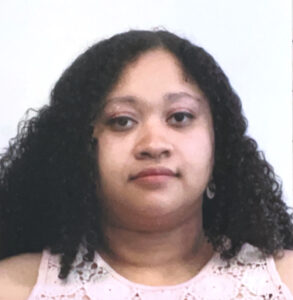INDS B.S.: Nutrition and Dietetics
My INDS Degree
I propose an individualized degree plan in Nutrition and Dietetics with the goal of providing case-by-case, customized nutrition and dietetic advice to people born with physical disabilities and handicaps. The Centers for Disease Control and Prevention states that “people with disabilities need health care and health programs for the same reasons anyone else does—to stay well, active, and a part of the community.” However, many in the disabled and handicapped communities may lack proper and professional nutritional guidance as a result of the specialized treatment that disability often gets.
I plan to accomplish this while considering the many influences that impact a patient’s life by incorporating courses from the subjects of biology, anthropology, sociology, psychology, and health administration. Courses in biology and anthropology will provide knowledge on the human body, its systems, and its development which can be used to determine the body’s needs and assess the effectiveness of meal plans. Sociology courses will be beneficial in understanding how cultural and social backgrounds affect patient food choices. Psychology courses will be important in assessing the mental health and states of patients throughout the diet and lifestyle changes. Health administration courses will be important in understanding how to provide proper healthcare to patients and how to communicate nutrition and health issues.
Post Graduation Plans
Following graduation from UMBC, I will begin working within or closely related to the field of nutrition to add to my work experiences. I would like to work in a hospital setting where I am assisting short- or long-term stay patients who may need dietary assessments or meal plan management. Other facilities within hospitals may also have dietitians or nutritionists on hand, such as cafeterias, pediatric wings, or physical therapy facilities. During this time, I will be working on gaining the qualifications to become a registered dietitian, however, the qualifications to become one are changing starting January 1, 2024. To sit for the CDR registration examination for dietitians a master’s degree will be required. According to UMBC’s registered dietitian, Adam Sachs, this path is also available to those who have not completed an accredited bachelor’s program, such as the INDS program. Due to this, the master’s program I take must be accredited by ACEND, which is the Accreditation Council for Education in Nutrition and Dietetics. From research, there is only one accredited master’s program currently in Maryland, at Johns Hopkins University, so I will be looking to enter that program, however, that may change in the coming years so I will continue to keep myself updated on all available programs. After this, I will need to participate in an ACEND-accredited supervised practice dietetic internship program before I can sit for the exam. There are several dietetic internships available at various universities in Maryland. Once the exam is taken, it is also required to maintain continuing education. I will use those opportunities to further educate myself on the various types of disabilities and their links to nutrition.
Courses In My INDS Degree
✅Human Health and Biology: These courses will provide knowledge on the normal functioning of the human body and how changes to health impact the functions of bodily systems. This will help me gain an understanding of the impacts that lowered physical activity and different diseases have on the body and provide insight into how nutritional advice may be used to right abnormal functioning as much as possible.
(BIOL 233, 251, 252, 273)
✅Understanding People Behaviorally and Psychologically: These courses will provide knowledge of the different mental states that people may have when seeking nutritional advice and knowledge. Understanding these states will allow me to be more personable with future patients. I will also be able to gain an understanding of the motivations and health goals that these patients want to achieve and being mindful of those goals will help maintain positive relationships with patients, and will assist with improving and maintaining health.
(PSYC 210, 360, 365, 385)
✅Social and Cultural Influences on People: These courses will provide insight into the different social and cultural backgrounds that influence food choices, eating behaviors, food accessibility, and perception of health. People are limited not only by disease and physical capabilities, but by access to healthy food, culture, and religious practice, and these limitations must be taken into consideration when constructing nutritional advice and diet plans.
(ANTH 312, HAPP 329, PSYC 230, 463, SOCY 351)
✅ Providing Healthcare Services: These classes will provide knowledge on the processes of providing healthcare to patients. There are many rules and regulations that must be followed when providing nutrition advice to patients and there are proper and professional ways to interact with patients as well. Knowledge of available healthcare facilities will also be useful when assessing medical history and health goals. Being educated about the issues within the healthcare system will also allow me to mitigate some of these problems when assisting patients.
(HAPP 200, 340, SOCY 352, 455, SOWK 372)
✅ Individualized Study: These courses will provide knowledge on different disciplines that can be incorporated into creating my individualized degree plan in Nutrition and Dietetics. They will also provide the resources necessary to participate in internships and complete my capstone project.
(INDS 330, 335, 410, 480, 490)
